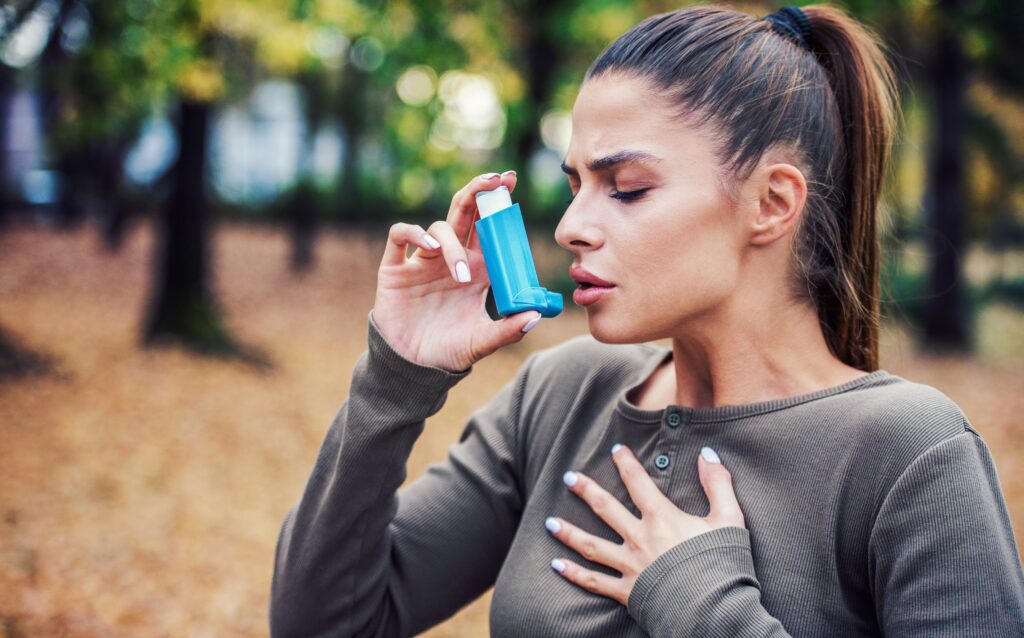
You have probably already learned that cleaning your teeth twice daily is a simple and effective way to prevent dental problems. However, did you know that people with asthma are about 18.8% more likely to develop gum disease?
Although an infection in your gums starts small, it can worsen and enter your bloodstream, contributing to other health conditions if left unaddressed. Thankfully, there are things you can do to preserve your gums, even with asthma. Continue reading to learn more about the connection between these two conditions and how to protect your grin!
What is Asthma?
An estimated 27 million Americans (about 1 in 12 people) have been diagnosed with asthma. This chronic lung disease can inflame your airways, restricting your airflow. Several factors can trigger it, including exercise, allergies, environmental irritants, extreme weather, or other airborne substances. Once activated, it’s harder to inhale and exhale, leaving you prone to coughing, wheezing, chest tightness, and shortness of breath. Typically, patients rely on an inhaler and other prescription medications to manage symptoms.
How Does Asthma Contribute to Dental Problems?
Asthma increases the risk of gum disease because you’re more likely to breathe through your mouth as you struggle to get enough oxygen into your system. This can lead to dry mouth, which means you’re not making enough saliva. Spit is your mouth’s natural defense system. Not only does it rinse away germs and leftover bits of food, but it also has a nearly neutral pH balance to counteract acid damage. That means unwanted bacteria can flourish when your mouth dries out, building a plaque layer along your gumline. This, in turn, can penetrate and infect the connective tissue.
Furthermore, some inhalers that help reduce symptoms are sweetened with sugar to be more palatable. This attracts additional microbes that work to contribute to dental concerns like tooth decay and gingivitis.
How Can I Safeguard My Smile with Asthma?
If you’re worried that your inhaler contains sugar, you ask your doctor about possible alternatives to reduce the risk to your teeth. You can also drink a glass of water after you’ve puffed to eradicate bacteria.
Otherwise, maintaining a consistent dental hygiene routine is an easy way to strengthen your smile to better resist the effects of your asthma. You should thoroughly (but gently) brush and floss your teeth every morning and night. Then, rinse with a non-alcoholic mouthwash that won’t dry you out.
Also, you should schedule a routine checkup and cleaning with your provider every six months so they can ensure that your asthma hasn’t caused a dental dilemma!
About the Practice
At the Dental Center of Aspen Hill, you and your family benefit from several experts who work together to offer a full array of services at one convenient location. With 10+ years of combined experience, they are comfortable working with patients of all ages and stages of development. They take the time to get to know you and your unique goals and concerns so that when a problem comes up, they can quickly devise a personalized treatment plan. Then, they utilize state-of-the-art equipment to deliver accurate results that are intended to last. If you’re worried about gum disease, you can request an appointment on the website or call (301) 871-8000.


